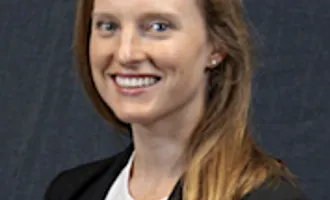Peer-mentoring helps postdocs and graduate students build meaningful group connections
Human beings are social animals. We thrive when we belong to a community of like-minded individuals who support and endorse us. Many postdocs would agree with such sentiment; however, the nature of research leaves little time for connecting with fellow scientists.
Two postdocs, Corinne Nielsen and Katie Thompson–Peer, decided to address the problem of postdoctoral isolation through creating a women’s peer-mentoring group. Amanda Mason, UCSF graduate student, followed their lead and organized a similar group for graduate students. Synapse spoke recently with Mason and Thompson–Peer about the peer-mentoring groups that they help to run.
Synapse: Usually, mentoring happens through forming a relationship between a more experienced senior adviser (faculty) and a junior mentee (student). Peer-mentoring groups consist of members who are on a similar level of professional development. What is the advantage of peer mentoring compared with a more traditional “vertical” mentoring?
Amanda Mason: Vertical mentoring sounds great in theory, but on practice it is very hard to implement. Many senior women would love to mentor, but struggle to find time in their busy schedules. Also, in order for a mentor–mentee relationship to last, two women should have similar professional interests and complementary personalities, which makes matching harder. Peer-mentoring groups are devoid of matching problems, since they usually consist of eight to 12 women from a similar professional background.
Katie Thompson–Peer: Also, typical peer mentoring groups run with the same women for months and years, allowing women to get to know each other and build trust and rapport. It is a round-table format rather than unidirectional advising, and everyone gets a chance to both give and receive feedback. Besides, many senior women do not experience the same day-to-day problems as their junior colleagues. A woman is more likely to get helpful advice from a person who recently went through a similar situation, whether it is resolving a conflict at the workplace or applying for funding.
How are the meetings structured, and what types of topics can be discussed?
KTP: We aim at being a professional problem-solving group, so the topics we choose are in the field of professional development. In the past year, we discussed such topics as supervising graduate students, managing collaborations, networking in science, authorship, etc. Usually, a group makes a list of interesting topics, and a moderator, which rotates every meeting, is leading the discussion.
AM: Our group also aims at helping graduate students deal with everyday issues. So far, we have talked about some of the bioethics case studies, as well as time-management skills.
What other woman-targeted groups, events or resources exist on campus?
AM: You might want to attend one of the UCSF Women-in-Life-Sciences (WILS) monthly events. In fact, March is Women’s History Month, and two great events will take place in the beginning of March.
On March 7, WILS, together with Healthcare Businesswomen’s Association, is organizing a workshop called “Skill-Building Workshop: How to Transition Into Non-Bench Positions in the Biotech/Pharma Industry.”
On March 9, WILS partnered with the local chapter of Women in Bio to host a special half-day event held at UCSF–Mission Bay. The event will kick off with a panel discussion on new tools in biotech research, followed by networking and another panel focused on pharmaceuticals and diagnostics. (To register, visit WILS website ucsf.orgsync.com/org/wils/Events).
KTP: I can highly recommend speed-mentoring events that are organized specifically for postdocs and happen every January. A recent one focused on women postdocs and brought together 30 expert women and about 50 trainees. Speed mentoring is another form of networking, which allows postdocs to interact with four to six mentors a night and receive advice on their career development through one-on-one conversations. Mentors also enjoy these events, since it allows them to give back to the community without investing a significant amount of time.
Peer-mentoring groups are supported through Postdoc Office and the UCSF Committee on the Status of Women and meet every month on both Mission Bay and Parnassus campuses. To learn more about peer-mentoring groups, please, contact either Amanda.mason@ucsf.edu or Katherine.Thompson-Peer@ucsf.edu.


